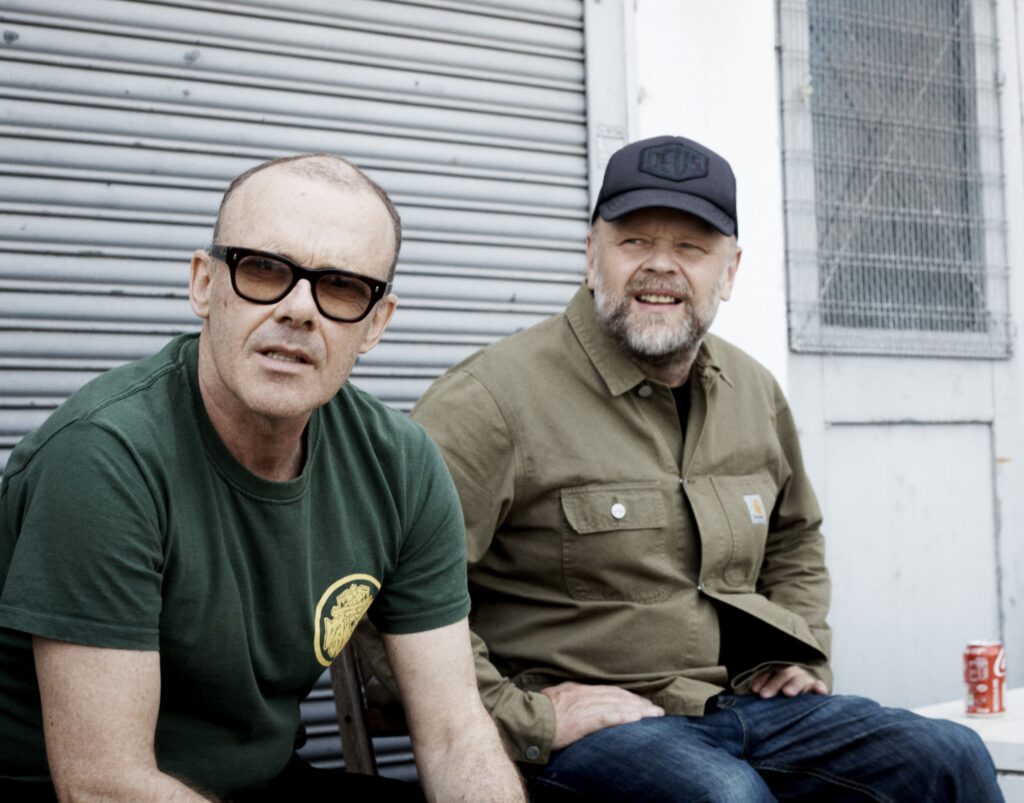
Leftfield Upgrades From A Prism Sound Orpheus To A Titan Audio Interface
The Titan is now acting as the hub for all the synthesisers and outboard equipment in Leftfield’s London studio.
Neil Barnes, a founder member of British electronic music group Leftfield, has installed a Prism Sound Titan audio interface in Leftfield’s London studio where it is acting as a hub for all the synths and outboard equipment.
Designed to offer high quality analogue and digital I/O for Mac or Windows PCs, Prism Sound’s Titan delivers sample rates of up to 192kHz via a simple USB interface. With its MDIO interface expansion slot that allows for direct connection to Pro Tools|HDX systems, Titan is a popular converter among recording professionals who use external hardware devices but want easy access to Prism Sound’s renowned sound quality.
“The Titan is the hub of the studio, giving us access to our synths and outboard, and more often than not replacing the mixing desk,” Neil Barnes says. “The ADAT I/O is essential for connectivity to our Cranborne 500 ADAT, and we have the option of future expansion using Dante with further Prism Sound interfaces.”
Leftfield (originally comprised of Neil Barnes and Paul Daley), has been at the cutting edge of dance music ince the 1990s, releasing albums that have become some of the most influential electronic records of all time around the world. Their debut album, Leftism, is widely regarded as one of the most boundary-pushing electronic LPs ever released.
In 2010, Neil Barnes reignited the Leftfield name, and went on to release two new albums (Alternative Light Source and most recently This Is What We Do), touring the world with the full live band.
Leftfield records in a private two room studio in London that is equipped with an Amek BC3 32-channel desk and Tannoy, PSI, Amphion and Geithain monitors through a Trinnov. The Prism Sound Titan is now the main audio interface, replacing a Prism Sound Orpheus which was upgraded so Barnes could benefit from the USB connectivity that Titan offers, and so that the studio could stay at the leading edge of quality that Prism Sound interfaces offer.
“We run a hybrid system, utilising the best tools for the job,” Barnes explains. “We sequence with external devices like the Cirklon or Intellijel Metropolis or Logic and Ableton, controlling an array of synths, eurorack modules and drum machines. We have a fair amount of outboard processing that we access directly via the Titan analogue I/O, or digitally through the Titan’s ADAT interface to a Cranborne Audio 500 ADAT. This means that come mixdown, we can compress and EQ stems and individual sounds out of the box which, to our ears, still does a better job. We use compressors from Chiswick Reach, AML, Manley, DBX, Empirical Labs and Chandler amongst others.”
As someone who was already familiar with Prism Sound technology, Barnes says he found installing the Titan very simple.
“It was a plug and play operation with the same form factor and connectivity,” he says. “We only had to change the Firewire cable to a USB. The Titan has no MIDI (unlike the Orpheus), so we have had to find alternatives. The quality of the Titan is such that we are comfortable sending stems and the mix bus to external hardware without worrying about the impact this will have on the sound. With most audio interfaces now using the same handful of chips for AD/DA conversion, it is the construction, software and most importantly the analogue circuitry that defines the quality of the device. Prism Sound have always been at the forefront in these areas which is why we choose to use them.”
Leftfield is currently busy preparing for live shows throughout the UK and Europe and has also just completed remixes of its single Full Way Round.
“The Titan will be used on all Leftfield music going forward,” Barnes adds. “It is working seamlessly with all our computers and is sonically engaging and a joy to use.”
-ends-
About Prism Sound
Founded in 1987, Prism Sound manufacture professional digital audio equipment for the international broadcast, film and music production sectors. The company’s products are renowned for their exceptional audio quality and are the converters and interfaces of choice for many of the world’s top artists, producers, composers, mixing and mastering engineers. They are also the mainstay of many internationally acclaimed audio facilities including Metropolis Studios, Sony, ESPN, the Library of Congress and Walt Disney. Prism Sound also produces SADiE audio production workstation software, which is used by major national broadcasters such as the BBC and Radio France, as well as many of the world’s leading mastering houses and classical and live music recording engineers.
For more information: www.prismsound.com